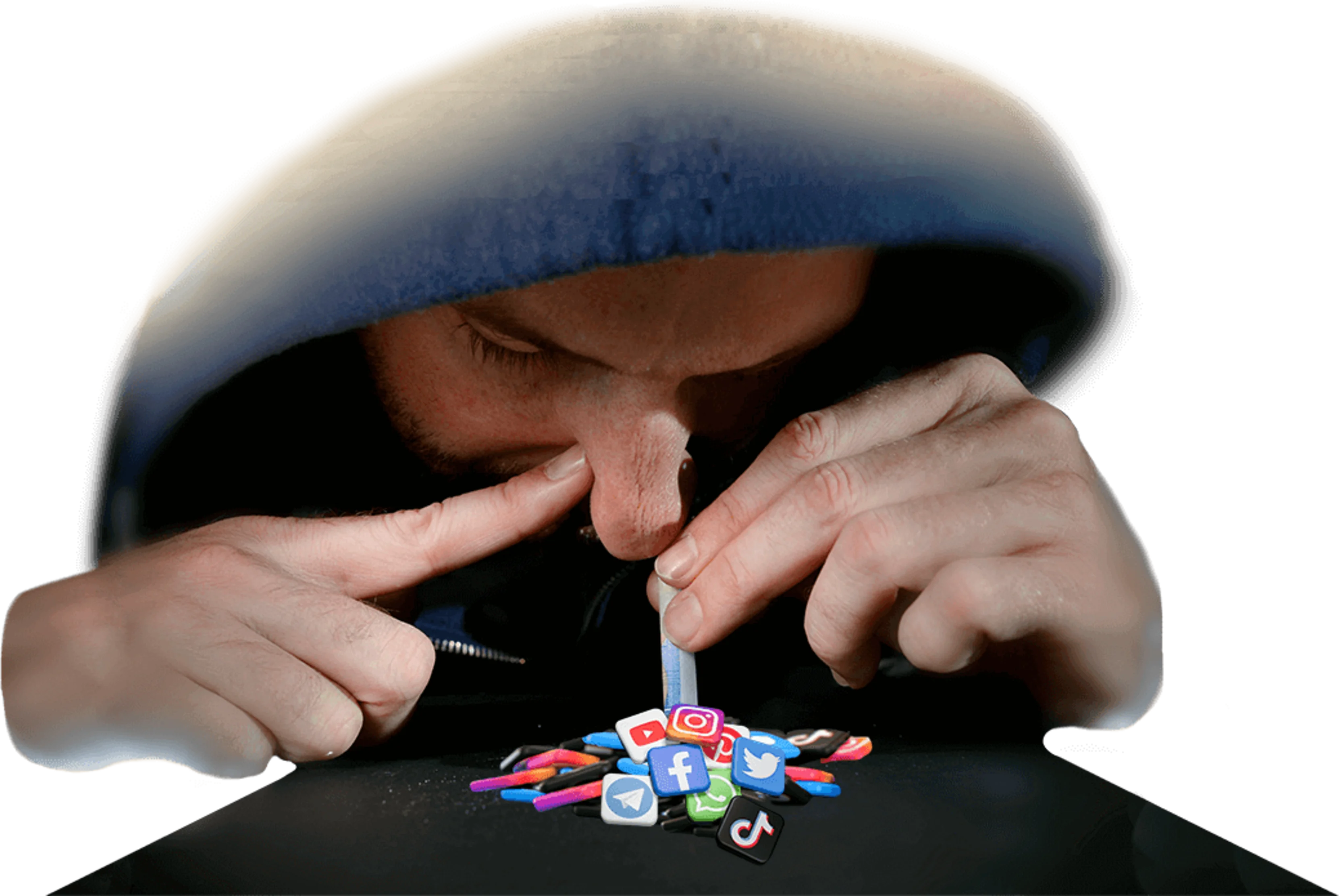Do you need a Digital Detox?


Have you ever been watching a film at home and 10 minutes in, your phone will just magically appear in your hand? Ever get the urge to scroll Twitter while you’re filling your car up? Are you unable to wait in line at the shop without checking your notifications? Well… me, too. And it needs to stop.
Now, I’ve never been one to act like the crotchety old grandpa who waves his walking stick in the air, ranting ferociously about how social media is evil, technology is poisonous, and that those blasted young people are all obsessed with their phones. Because that’s a generalisation and an unfair stereotype (not to mention tiresome and annoying).
But it also isn’t entirely untrue.
Keeping your phone in your pocket (or even, in your hand) at all times is a slippery slope to becoming a slave to that sweet, sweet instant fix of dopamine. That immediate gratification that our poor addicted brains feel with every scroll. It’s easy. It’s satisfying. But it’s time for an intervention.
Years ago, I had no trouble sitting through a movie without even thinking about Twitter. I could let a game’s loading screen pass me by, and not feel the need to absentmindedly open Instagram, only to instantly close it again. But now, that’s all changed, and it’s thanks to these bewitching rectangles. I can’t even remember what I used to do with my time. The idea of just sitting patiently for a few seconds without obsessively absorbing words from a tiny screen seems alien. I think that’s a little worrying, and maybe a sign that I need to remember to put that thing down sometimes.
And if any of this sounds like you, then perhaps you do, too.

It isn’t nice to feel reliant on some tiny device in my pocket. Due to how much of my free time I throw away on pointless devotion to reading what strangers online have to say, it’s tough for me to recall many meaningful, tangible interests I once may have had. And honestly, that makes me feel like I’m losing my sense of self a little bit (not to be dramatic or anything).
My ability to make real-life conversation is suffering due to how jittery my thought processes often are. I sometimes find that my phone is drawn to my hand like a magnet even when I’m with friends and family. My social life is crumbling so gradually because of this stupid issue, that it’s almost hard to notice. And the sad thing is, I feel like this is something that practically half of our age group can relate to.
Now, it’s not entirely our fault. Social media apps are all designed to be addictive. That’s almost the whole point. They promote and encourage endless scrolling. Bump after bump of quick, easy dopamine. They’re built to entice us and keep us in a chokehold, making us feel like we rely on them. Like we can’t live without them. Like we need them.
But we don’t.
Okay, so, we all know that it’s a waste of time to be absorbed in your phone. Everyone’s aware of that. No one is delusional enough to believe that falling victim to hours of TikTok is productive. So what? We don’t need to be productive all the time. What’s the problem?
The problem is exactly what I mentioned earlier: through our growing appetites for constant stimulation, our attention spans are suffering. We’ve become ravenously, and concerningly, dependent on keeping our brains busy 24/7, like a toddler in a shopping trolley entranced by the pretty colours and shapes on his iPad.
It’s important to understand how exactly overuse of our phones can affect our minds, so that we know how to better care for our brains. Those poor, squishy things have a lot to worry about as it is.
A study conducted in 2019, published in the Journal of Behavioural Addictions, tasked 414 people with solving anagrams. Some were told to use their phones while taking a break halfway through the puzzle, and others were instructed to use something else to keep themselves occupied – like a computer or a piece of paper.
So, what was the result?
Those who used their phones during their breaks went on to solve the remaining anagrams a whole 19 percent slower than those who didn’t, and solved 22 percent fewer to boot. The conclusion drawn was that this is down to how our brains struggle to rapidly switch from one task to another. We’re putting our little noggins through the wringer by dividing up the day with short phone breaks every time we find a spare second. We’re making our minds sluggish. We’re destroying our ability to concentrate.

Checking our phones all the time only enables this addiction. We’re rewarding that behaviour, which only leads to wanting more. And more. And more. And before you know it, having a cheeky gander at your TikTok ‘For You’ page between day-to-day tasks becomes a natural part of your routine. We don’t even think about it anymore. It just happens. We’re no longer in control.
So, isn’t it time that we take that control back?
Don’t worry – I’m not about to suggest we all quit cold turkey, deleting all social media and pledging to never retweet or nose-laugh at anything ever again. What would we do then? Get a hobby? Not likely.
All I’m suggesting is that we try to be a little more mindful of this habit. Next time your arm reaches out with a mind of its own towards your device, give it a firm slap and tell it “no”. Whenever you’ve got a minute or two to breathe and you feel compelled to spend it on your Instagram ‘explore’ page, ask yourself why. Let’s break this addiction to mindless content consumption. I believe in us. Every time we resist that nagging urge to pick up our phones, we’re rebuilding our attention spans, piece by piece.
Don’t get me wrong, though. I’m not saying I’ve mastered this, myself. Truth be told, I checked my phone at least a dozen times while writing this. But I’m trying. I can stop anytime I want. I swear.
Written by
Jordan MortA laid-back but passionate writer with a deep love for stories and an everlasting desire to tell them. Always distracted by small animals.
Read next
Social Media: A tale of two selves and the poison of comparison culture

Lauren Chadwick
The 'Working from Home' Mistake

Linden Grigg
Is social media robbing the fun from our hobbies?

Hannah Mitchell
Weekly emails
Get more from Jordan
The Fledger was born out of a deep-seated belief in the power of young voices. Get relevant views on topics you care about direct to your inbox each week.
Write at The Fledger
Disagree with Jordan?
Have an article in mind? The Fledger is open to voices from all backgrounds. Get in touch and give your words flight.
Write the Contrast